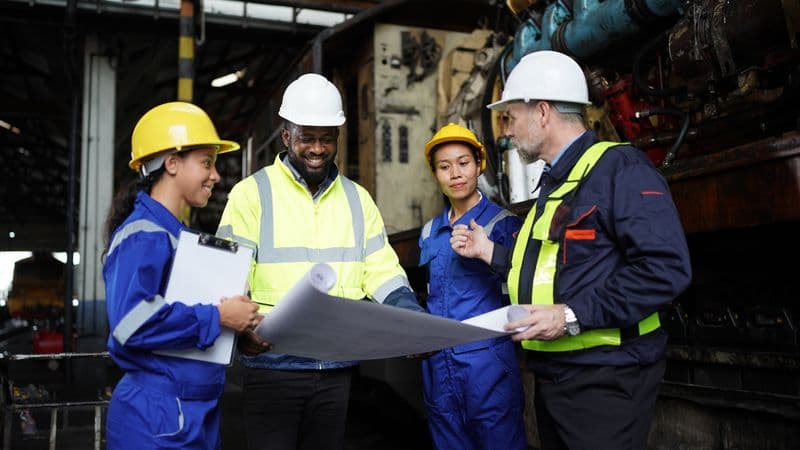Areva signs agreement on quality of life at work
Published: 6 September 2012
Promoting an improved quality of life at work relies on companies agreeing to a shared and multi-disciplinary approach in such areas as the prevention of psychosocial risks, workers’ well-being and stress at work. The definition of stress at work in this case is ‘an imbalance between what employees perceive they have to do and the resources they have to do it’.
A collective agreement on the development of initiatives to improve employees’ quality of life at work was signed by the Areva Group and social partners on 31 May 2012. The agreement recognises that improving the quality of life at work can be of benefit to both the company and its employees. It adopts a shared approach involving all stakeholders and includes a number of new measures aimed at improving work–life balance. Areva has set up a national unit to monitor progress.
Common definition of quality of life at work
Promoting an improved quality of life at work relies on companies agreeing to a shared and multi-disciplinary approach in such areas as the prevention of psychosocial risks, workers’ well-being and stress at work. The definition of stress at work in this case is ‘an imbalance between what employees perceive they have to do and the resources they have to do it’.
By signing a collective agreement on quality of life at work with social partners on 31 May 2012, the major French company the Areva Group has recognised the importance of improving working conditions. The Areva Group is a global leader in nuclear energy.
Previous research by the National Agency for the Improvement of Working Conditions ANACT on quality of life at work was used as a basis for developing the Areva agreement. ANACT defined quality of life at work as:
a virtuous circle between several dimensions directly or indirectly linked to work: social and work relations, work content, environment, work-life balance, personal development opportunities, and conciliation between professional and personal life.
ANACT has since noted that the global effect of this process is not a sum of several factors but the result of a shared culture around quality of life at work.
Shared approach
When defining a company’s strategy on quality of life at work, its managers have to consider the balance between economic and industrial performance on the one hand, and individual and collective well-being on the other.
Areva’s research highlighted six ‘actors’ as having a specific role in a co-ordinated approach to achieving and monitoring improvement in the quality of life at work. Areva decided that managers at all levels, but specifically line managers, were vital to the implementation of the initiative. It was considered particularly important that they should listen to their teams and be aware of workload issues, work organisation and work content. For their part, employees would be expected to take responsibility for managing relationships with colleagues and management, and for alerting them to potential problems.
Professionals directly involved with the promotion of employees’ quality of life at work – such as occupational health doctors or nurses, and occupational health consultants – were highlighted as potential external contributors to improving conditions at a company. Human resource managers are responsible for forcing changes in the quality of life at work by monitoring working conditions and social policies.
The Areva agreement underlines and reinforces the role of the Committee of Hygiene, Safety and Working Conditions (CHSCT), an employee representative body dedicated to the improvement of working conditions. Employee representatives at the company play a key role in monitoring quality of life at work and alerting the management when they detect problems and difficulties.
Measuring success
The Areva agreement contains several measures aimed at improving quality of life at work.
The efficient organisation of tasks is highlighted as having a major influence on the quality of life at work. Ensuring staff have a clear understanding of the job and proper management of workloads are seen as vital in allowing employees to have some autonomy over the organisation of their work. The Areva agreement aims to ensure workers have good knowledge of their responsibilities and tasks, as well as involvement in decision-making processes at the company where these are relevant to them. Management has a key role to play in ensuring that sufficient resources and appropriate training are put in place to achieve the objectives.
Social relations at work are a key aspect of quality of life at the workplace and are important in fostering a well-motivated workforce. The stakeholders at Areva agreed on the need to protect the collective dimension of work and good team practices. New information and communication technology (ICT) was highlighted as having a potentially detrimental impact on work relations, contributing to the dehumanising of relationships. Measures aimed at ensuring help and support for employees having difficulties with issues such as harassment at work have also been implemented.
The work environment and physical nature of the job were also taken into account. The agreement made provision for the mandatory implementation of a specific action plan in each unit of the Areva Group with 50 employees or more where employees undertake tough physical work. The action plan includes the provision, when necessary and possible, of vocational training and support for early retirement schemes for vulnerable workers.
Organisational change is considered a potentially disturbing and detrimental risk factor for quality of life at work. Areva’s agreement will see measures put in place for collective preparation to manage change and to give individual support to workers who need it.
A section in the agreement on self-fulfilment and personal development includes a number of measures aimed at improving work-life balance. These include new initiatives on telework, part-time work and parental leave. Part-time work will be monitored to ensure that workloads are in line with the working hours agreement, while parental leave will be supported by maintaining the social contributions paid to the retirement insurance scheme at the same level as that for full-time workers. In addition, a six-month experiment on telework is to be conducted to investigate whether it would be a good way of improving work–life balance.
Commentary
Following the agreement, Areva has set up a national observatory on quality of life at work to monitor the issue within the Group. An annual report will be presented to the social partners by the management and the health and safety unit.
Sarah Mongourdin-Denoix, IRShare
Eurofound recommends citing this publication in the following way.
Eurofound (2012), Areva signs agreement on quality of life at work, article.
&w=3840&q=75)


&w=3840&q=75)
&w=3840&q=75)
&w=3840&q=75)